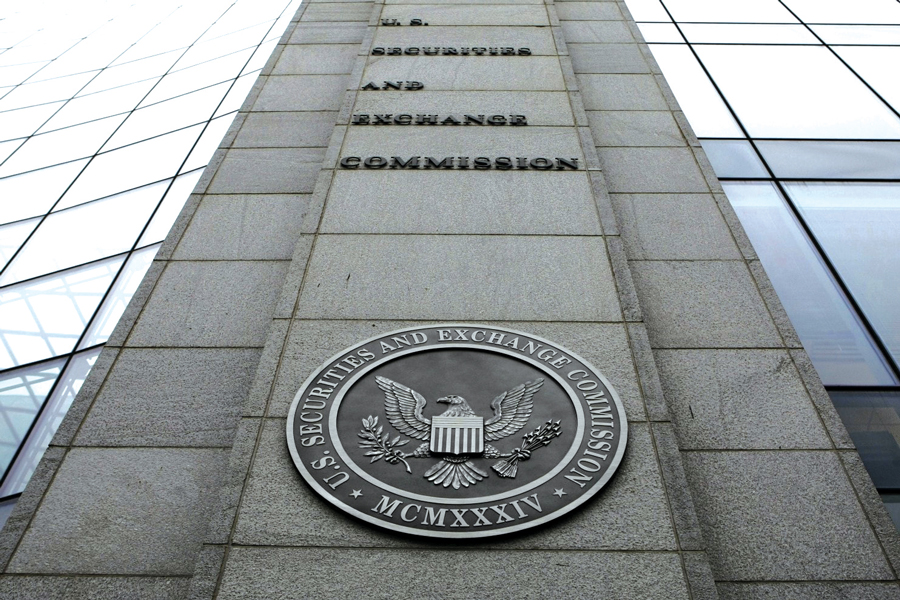

The Securities and Exchange Commission took more enforcement actions in fiscal year 2021 than it did in the previous year, but the money the agency ordered violators to pay in penalties and disgorgement and the funds it returned to investors decreased.
The agency filed 434 new enforcement cases in fiscal 2021, a 7% increase from the 405 filed in fiscal 2020, according to an SEC announcement Thursday. But the overall number of enforcement actions decreased 3% to 697 last year from 715 in 2020, when follow-on administrative proceedings and delinquent filings are included. The fiscal year ended Sept. 30.
The SEC ordered $3.9 billion in penalties and disgorgement in fiscal 2021 compared to $4.7 billion in fiscal 2020. The total amount in penalties rose to $1.5 billion in 2021 from $1.1 billion in 2020, while disgorgement fell to $2.4 billion in 2021 from $3.6 billion in 2020. The SEC returned $521 million to harmed investors in 2021, down from $602 million in 2020.
The SEC took 110 enforcement actions against broker-dealers, or 16% of total actions, while it filed 159 actions against investment advisers and investment companies, or 25% of total actions.
The agency touted its efforts to hold individuals responsible for wrongdoing and to pursue enforcement cases in areas of emerging investor-protection threats, such as cryptocurrencies and special purpose acquisition companies.
"The SEC’s Enforcement Division is the cop on the beat for America’s securities laws," SEC Chairman Gary Gensler said in a statement. "As these results show, we go after misconduct wherever we find it in the financial system, holding individuals and companies accountable, without fear or favor, across the $100-plus trillion capital markets we oversee."
The SEC distributed $564 million in whistleblower awards to 108 individuals in fiscal 2021, a record amount. The SEC has made more than $1 billion in whistleblower awards since the program was launched in 2012.
The SEC highlighted among the new enforcement areas an action in which it fined 21 investment advisers and six brokerages for failing to file or missing filing deadlines on Form CRS, the client relationship summary that was created as part of the Regulation Best Interest rulemaking.
"This year has seen a number of critically important and first-of-their-kind enforcement actions, as well as record-breaking achievements for our whistleblower program, which we expect will lead to even more successful actions in the future," Gurbir S. Grewal, director of the SEC’s Division of Enforcement, said in a statement. "Undeterred by the challenges of the pandemic, the dedicated public servants in the Enforcement Division have continued to overcome obstacles to bring these cases that protect investors and promote market integrity."

The move to charge data aggregators fees totaling hundreds of millions of dollars threatens to upend business models across the industry.

The latest snapshot report reveals large firms overwhelmingly account for branches and registrants as trend of net exits from FINRA continues.

Siding with the primary contact in a marriage might make sense at first, but having both parties' interests at heart could open a better way forward.

With more than $13 billion in assets, American Portfolios Advisors closed last October.

Robert D. Kendall brings decades of experience, including roles at DWS Americas and a former investment unit within Morgan Stanley, as he steps into a global leadership position.
Orion's Tom Wilson on delivering coordinated, high-touch service in a world where returns alone no longer set you apart.
Barely a decade old, registered index-linked annuities have quickly surged in popularity, thanks to their unique blend of protection and growth potential—an appealing option for investors looking to chart a steadier course through today's choppy market waters, says Myles Lambert, Brighthouse Financial.
